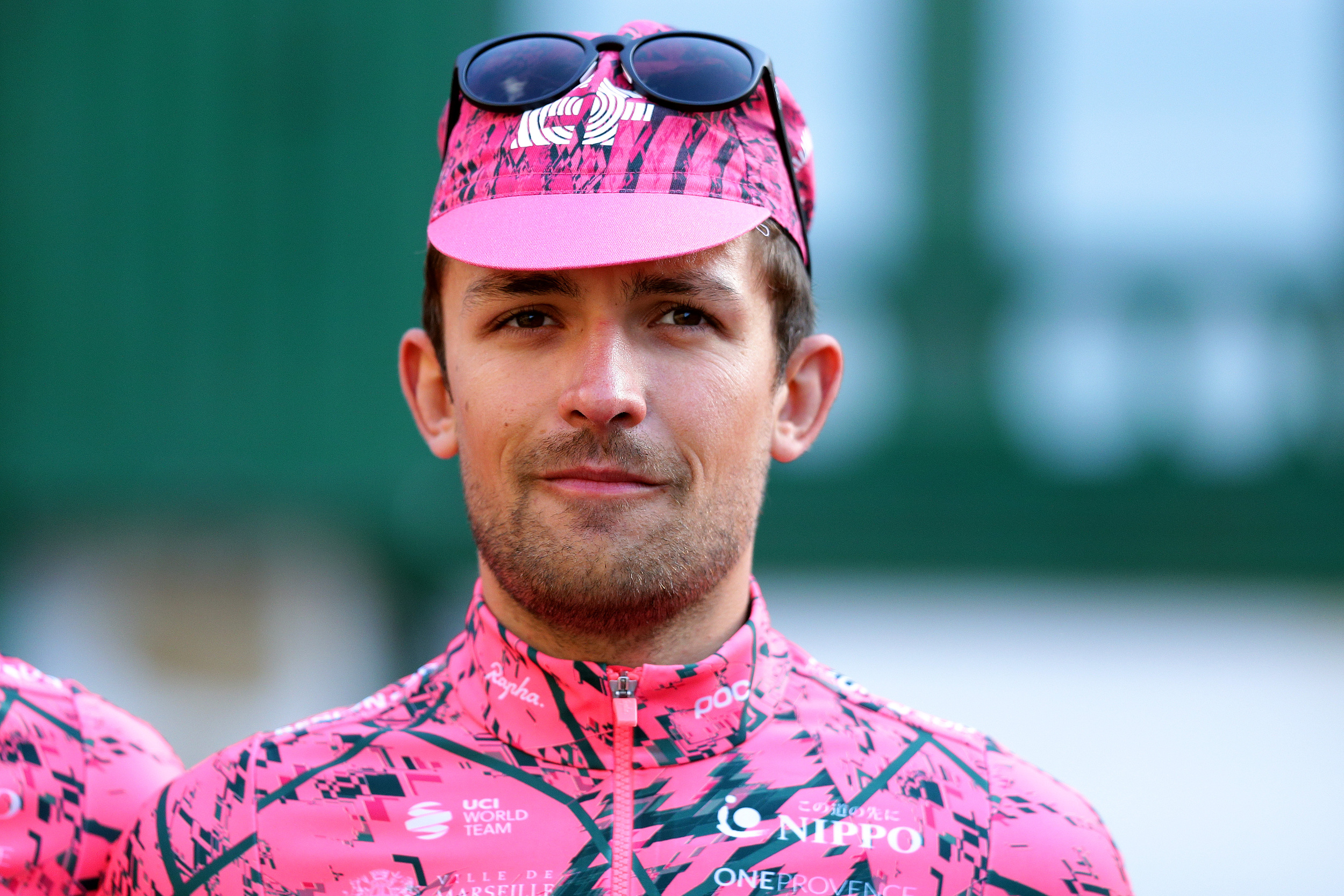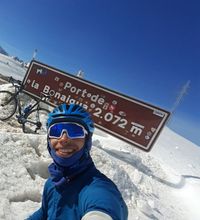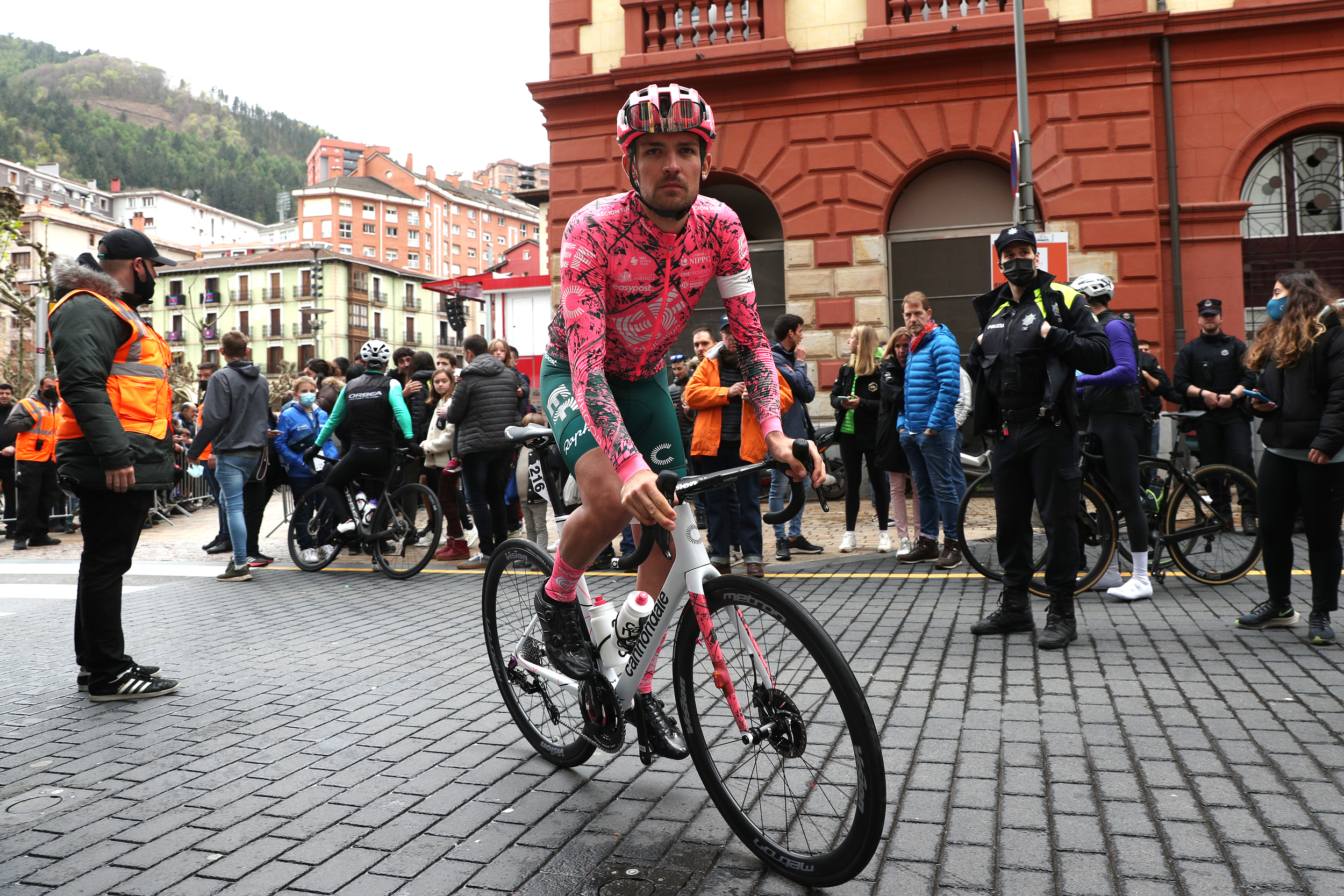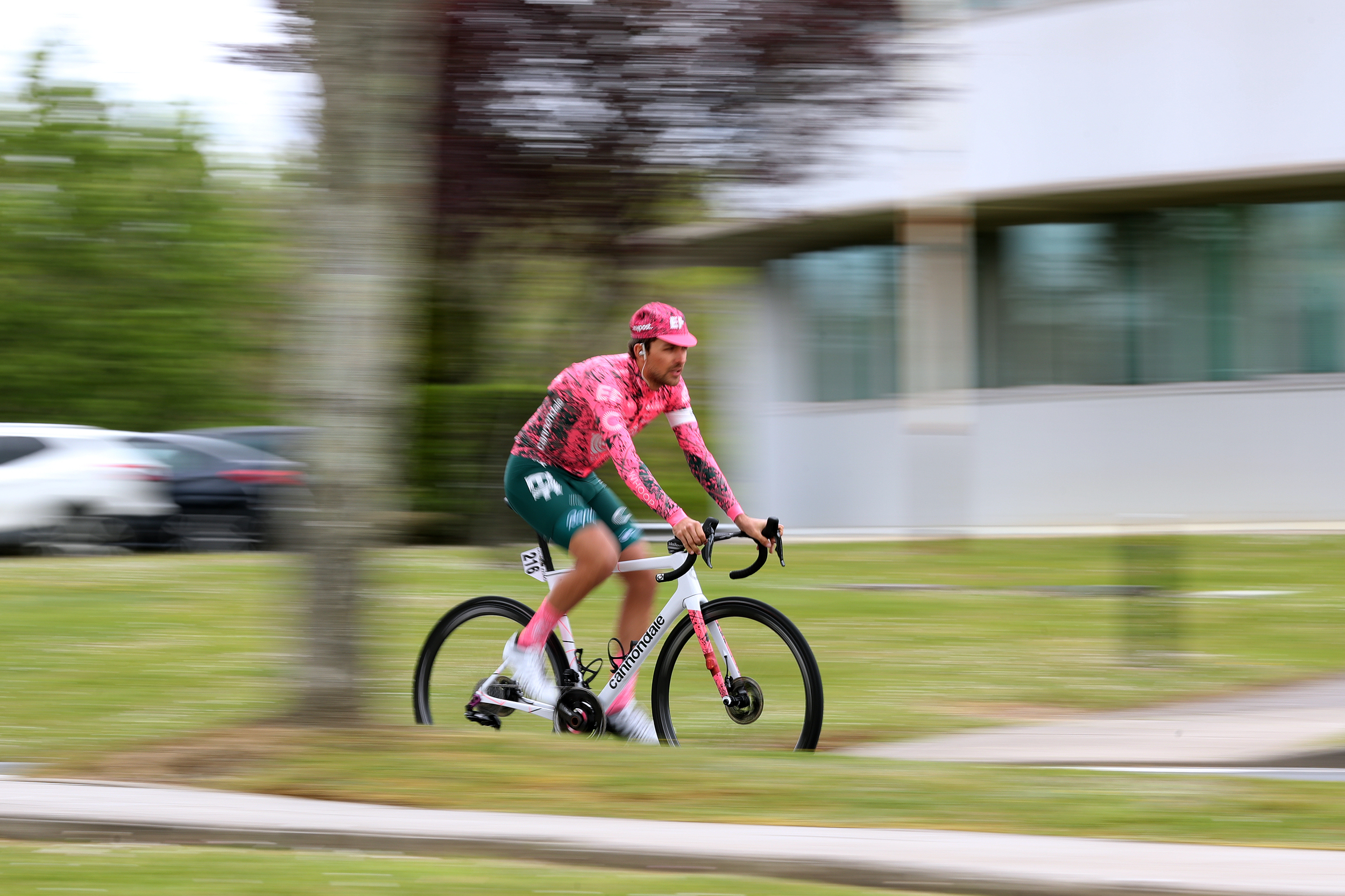Comical, severe and forever fighting: James Shaw's return to WorldTour stage racing after four years away
The British rider shares his experiences of a week of brutal racing in northern Spain


James Shaw would be a fine restaurant critic.
"You know when someone tells you how amazing some food is," he starts, the analogy still forming in his mind as the wind blows, "and then you try it and you're like, 'yeah it was good, but it wasn't that good. It's a bit like that."
The topic, for clarification, is not the EF Education - EasyPost rider's take on the small but filling pintxos that are available in every single last bar and restaurant in the Basque Country, but instead the region's bike race that every bike rider who has ever ridden it professes is the hardest stage race in the world.
"I think, in my head, I had built it up to be worst than it actually is," he goes on. "Mind you, I've still got two days to go, I've still got to get around." In the end, Shaw did, but not without a fight.
This was the 25-year-old's first WorldTour stage race since the Tour of Poland in August 2018, his time spent away from cycling's top-table well chronicled as he twice dropped to Continental level after two years as a young pro with Lotto-Soudal, had his progress hindered by the pandemic, and then returned to the highest tier on the back of multiple high placings against WorldTour riders last year.
"It's been a while!" he tells us on day two of the race. "For me, to drop out of this level and then to come back is quite a proud achievement because it's difficult to do. I've always thought that the second [WorldTour] contract is the hardest one to get. The first one comes as you come out of U23 ranks, but to get another one, that's the tough bit, so I'm happy."
A day after placing 23rd in the opening day's time trial, Shaw prefaces the struggles ahead. "I've been warned it's a grippy week." We tell him it's brutal. "Yeah, cheers for that, really making me feel better now. I've never raced Basque. Never ridden here. I've driven through on the odd occasion but that's it. Everyone just says it's tough."
The latest race content, interviews, features, reviews and expert buying guides, direct to your inbox!
Shaw is a good sport. He smiles, speaks in hushed tones, and has the cheery, relaxed vibe of someone totally content in where he is currently at. He's worked damned hard to be at this level once again.
He had predicted a few days before that "it's a day-by-day thing: I'm gonna take each day as if it's an individual race, as if each stage is its own Classic. I'll give it a bash and see what happens." He returns to the same assessment 72 hours later. "It actually is like racing an Ardennes Classic every day. The nature of this race is small, twisty roads and I've never raced somewhere with climbs like this before. It's never anything over six kilometres, but it's relentlessly steep."
"The last thing I want is my Pro Cycling Stats page being peppered with DNFs"
James Shaw
The race had felt like a slow-burner up until stage five's fireworks, and while Shaw shares that assessment before the explosions, he imparts some insight into the inner-workings of the peloton. His look adopts a confused one.
"There's always the narrowest of roads," he says, "so there's always a good run-in to a climb. You start the climb already a little bit tired as you've already pushed numbers to get to the front, and then you have to keep your position on the front and then do the climb. But often you hit the bottom of the climb and... nothing actually happens.
"Yesterday [stage four] I think we took two minutes from the breakaway fighting to get to the bottom of this climb, and no-one did anything! I was sat there thinking, 'Oh, alright, if we all just agreed at the start that this guy [can win], let's not panic'. But instead every DS is there going 'get to the front, get to the front', and we're like, 'yeah, alright, OK!'"
He laughs about the absurdity of it, but he's buzzing from it, too. "I enjoy the racing in the peloton," he adds. "You know, getting involved in the washing machine at the front, fighting for position. I love the fast descents, the twists, stuff like that." Giving it a bash, though, didn't really come to fruition. Half an hour or so after we speak, stage five's flag dropped. Nine kilometres later he punctured and required a wheel change. He spent the remaining 160km chasing, solo, fighting to the finish, not seeing even the rear of the peloton. "Looking back now I can laugh," he wrote on Instagram, "but at the time this wasn't as funny as it seems now. [It was] the most comical day I've ever had on the bike."

Día de Muertos
They talk, in mythical tones, about the racing, but for Shaw it was also a week of cultural learning. After Ukrainian Mark Padun dropped out on stage three, Shaw was surrounded by three South Americans and a Portuguese. Not really ideal when "my Spanish is non-existent."
But he's excited by how diverse the team is, saying "we've got staff from every point of the globe. EF are the polar opposite from Lotto where there was not one non-Belgian staff. The cultural experience here is something else." The team's doctor at the race was Mexican. "I was talking to him quite a bit," Shaw reveals. "He's convinced me to go to the Day of the Dead Festival in November. It sounds crazy. I've even been looking at flights already."
There were other factors that hampered him, chiefly among them a certain pandemic virus. "I had Covid a few weeks ago and it knocked me more than I thought it did," he says, confirming that he won't be riding the Giro d'Italia now due to his infection. "Coming here has magnified just how much I've lost.
"I thought I'd just lost a bit, and I'll be alright, but here it's like, actually... I just feel ridiculously unfit. I only have five days off the bike, but the Covid knocked me for six. I didn't really have much time to train and get back to fitness, and then I went straight into Milano-Torino and Milan-San Remo and I was like, 's**t!' My current fitness levels are giving me a good kicking."
Covid is still on his mind when we speak after the race, but it's more out of a desire to illuminate his point rather than his frustration. "On Saturday, I was 36 watts down on a 20 minute power session compared to the Tour du Haut Var in February [where he finished ninth overall]. And both times I was full gas. That's how much Covid has cost me. It's like, when I get to 400 watts, that's it; I can't turn the screw any more - I max out."
He's pragmatic, though, saying, "loads of people have had the same issues, it's a thing, this post-virus fatigue. 90 percent of the peloton's had an illness, and the other 10 percent will get it too. You can't avoid it this year."

I point out to Shaw how relaxed he has looked; there's been nothing to suggest that he's fighting for his place or that he is desperate to prove his status as a WorldTour rider after four years away. He concurs, but he's still conscious of impressing. "I have waited a long time to return to a WorldTour stage race," he says. "There were moments when I thought it would never happen. But finally I could pin a number on this week and start a race.
"On Saturday, the last day, the team car came up to me and said I could climb off and prepare for Wednesday [where he's racing De Brabantse Pijl] but there was 50km to the finish and I wanted to cross the line. I wanted to do the full distance. As long as if I can cross the line I am content. I hate looking on Pro Cycling Stats and seeing a DNF.
"I remember at the end of 2020 I went to the Road World Championships and I got dropped with about 85km to go. I didn't have a contract for the next year and I thought that a DNF looks way worse than finishing 87th. So I kept on riding, passing the bus three or four times which is mentally the hardest thing you can do. But you know that people look at a result, and it doesn't tell the full story of it - you could have done an absolutely blinding job for the team, but then record a DNF which just doesn't reflect you as honestly as it should. The last thing I want is my Pro Cycling Stats page being peppered with DNFs."
As we wrap-up our series of exchanges, he jokes again about the Basque Country, how it is "really hard" and "the severity of the climbs". I imagine him re-writing his analogy, but instead he's forming a dream.
"I'd like to come back in better shape, give it a proper bash, the justice it deserves," he says. "I'm not saying I'd be fighting for podiums, top-10s or top-15s, but if I was in the shape I was in in February, there's no reason I couldn't be competitive in stages. I don't see why that's not a million miles away. If anything, I just want to turn the clock back and ride it again in the best possible shape. I hope one day the stars align and I'll go there with power in my legs."
He's been told by peers in the peloton that fitness levels are back to pre-Covid levels after around 10 weeks. "So that's in two weeks for me," he confirms. "The legs will come - it's just a waiting game." He's got pretty good at persevering and overcoming setbacks, has James Shaw.

Thank you for reading 20 articles this month* Join now for unlimited access
Enjoy your first month for just £1 / $1 / €1
*Read 5 free articles per month without a subscription

Join now for unlimited access
Try first month for just £1 / $1 / €1
A freelance sports journalist and podcaster, you'll mostly find Chris's byline attached to news scoops, profile interviews and long reads across a variety of different publications. He has been writing regularly for Cycling Weekly since 2013. In 2024 he released a seven-part podcast documentary, Ghost in the Machine, about motor doping in cycling.
Previously a ski, hiking and cycling guide in the Canadian Rockies and Spanish Pyrenees, he almost certainly holds the record for the most number of interviews conducted from snowy mountains. He lives in Valencia, Spain.
